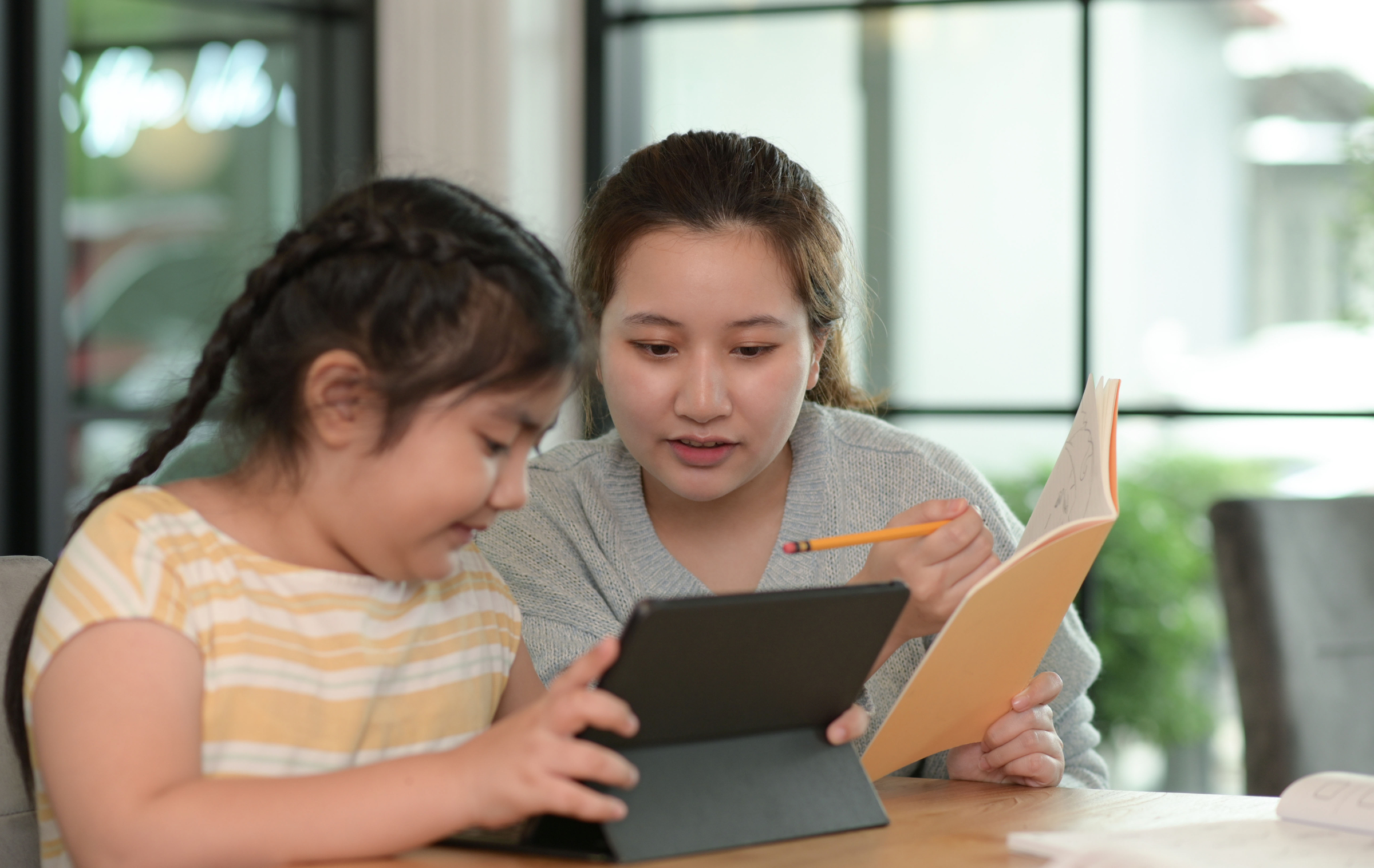Lan said her daughter often watches TikTok and then asks her mother about the information she hears. In the past, she happily answered her daughter's questions. But this time, Lan couldn't bring herself to speak.
"I don't want my daughter to know about the HPV virus during puberty because I think it's related to sexual activity," Lan said, adding that it was too early for HPV prevention for her daughter.
Every day, she guides her daughter on personal hygiene and maintaining overall health, trying to avoid the topic of reproductive health until her daughter is older. To prevent her daughter from accessing confusing information, she secretly checks her internet history and social media accounts, removing channels deemed "unsuitable".
 |
Families should accompany their children when learning about HPV instead of avoiding or sharing unclear information, helping children have a foundation of knowledge and be protected against this virus early. Illustration: *Vecteezy* |
Thu Huyen, 45, from Ho Chi Minh City, said she has talked to her 10th-grade son about HPV. According to her, high school students have developed their thinking and experience feelings for the opposite sex, so her son should have knowledge about HPV and related sexual issues. This basic knowledge will help him understand and remember his family's advice to protect himself.
Despite their openness, Huyen's family believes that HPV is not yet an urgent issue requiring prevention. "His current priority is still studying, and we tell him about other issues to avoid, not to engage in," she said.
Misunderstandings, such as not needing HPV prevention before sexual activity or that mentioning this virus will suggest sexual activity, are still common in many Vietnamese families. Survey data from the Central Health Communication and Education Center, Ministry of Health, on 5,000 people in May showed that parents still have many concerns about HPV. Up to 27.3% of parents believe that children do not need HPV prevention if they are not sexually active. 17.1% of respondents worried that early HPV prevention might affect children's mental and physical health. Some believe that proactive prevention or sex education for children may "spark unwanted curiosity" rather than protect them.
 |
Families and children learn about HPV and sexuality. Illustration: *Vecteezy* |
HPV has many routes of transmission: heterosexual or homosexual sexual contact; sexual intercourse; transmission from mother to child during childbirth (rare); the virus can be transmitted through contact with skin or mucous membranes infected with HPV. Thus, HPV can be transmitted non-sexually.
HPV is a very common virus worldwide. To date, more than 200 strains have been identified, many of which cause disease in humans. HPV can be eliminated from the body in most cases. However, in cases of persistent infection, HPV can cause cancer and related diseases.
Families should consult with medical professionals about HPV prevention measures at healthcare facilities; have annual check-ups or when children show unusual signs in the genital area. Parents should encourage children to increase physical activity and eat a balanced diet to improve their physical strength. Children should limit sharing personal items with others, practice proper genital hygiene, and proactively get vaccinated at healthcare facilities.
Strengthening communication efforts so that people understand and access HPV prevention measures is crucial. Therefore, it is more important than ever to promote communication and update scientific and useful information so that parents understand the role of prevention and feel secure in implementing it for their children.
Van Ha
To raise awareness about HPV prevention, the Ministry of Health launched the national communication campaign "For a Vietnam free from the burden of HPV" with the call: "Each individual protected - Community free from the burden of HPV". Consult with a medical professional immediately and learn more about HPV and the campaign at the website hpv.vn.
This content was jointly compiled by the Central Health Communication and Education Center, Ministry of Health, and MSD, verified by the Central Health Communication and Education Center, Ministry of Health, and sponsored by MSD for educational purposes.












